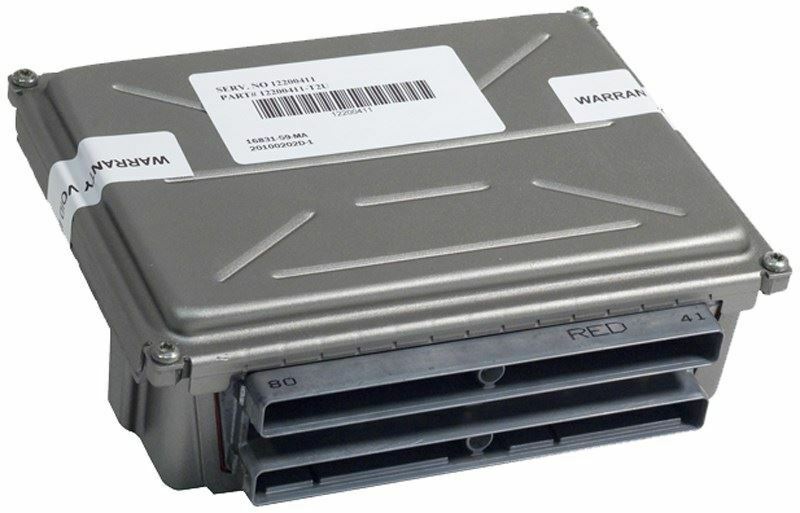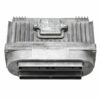Restore Your Vehicle’s Performance and Reliability
Is your Chevrolet Monte Carlo suffering from frustrating issues like a persistent check engine light, rough idling, stalling, or poor fuel economy? These are common signs that the vehicle’s core computer, the Powertrain Control Module (PCM), is failing. Don’t let a faulty computer keep you off the road. This direct-fit Powertrain Control Module is the definitive, hassle-free solution to bring your car back to life, arriving at your door fully programmed to your specific vehicle’s VIN.
Common Symptoms & Your Direct-Fit Solution
A failing PCM can cause a cascade of problems that are often misdiagnosed. If you’re experiencing any of the following, this module is the solution you need:
- Illuminated Check Engine Light (CEL)
- Diagnostic Trouble Codes (DTCs) like P0601, P0605, or P0606
- Engine stalling or cutting out unexpectedly
- Rough or erratic engine idle
- Noticeable decrease in fuel mileage
- Failure to pass emissions testing
- No-start condition where the engine cranks but won’t turn over
By replacing your old unit with this professionally programmed 1998 Monte Carlo PCM, you are installing a fresh, reliable component that restores communication between your engine and transmission, ensuring everything operates exactly as the manufacturer intended.
Features & Benefits
- ✔ 100% Plug & Play Installation: This module is pre-programmed to your vehicle’s unique VIN. There is absolutely no need for an expensive trip to the dealership or a specialized shop for programming. Simply install it and turn the key.
- ✔ Updated GM Software: We flash each unit with the latest software updates available from GM. This ensures optimal performance, fuel efficiency, and corrects many of the original factory bugs.
- ✔ Guaranteed Compatibility: Providing your VIN ensures this 1998 Monte Carlo PCM is a perfect match for your vehicle’s specific options and systems, eliminating guesswork.
- ✔ Cost-Effective Repair: Avoid the high costs and long wait times associated with dealership repairs. This is a smart, affordable solution to a complex problem.
- ✔ Broad Model Fitment: While perfect for the Monte Carlo, this module is also compatible with a wide range of 1998-1999 GM vehicles including the Grand Prix, LeSabre, Regal, and many more.
- ✔ Peace of Mind Included: This unit is backed by our one-year replacement warranty.
Expert Insight from a 20-Year Technician: The PCM is the ‘brain’ of your vehicle. It controls everything from fuel mixture and spark timing to transmission shift points. When it starts to fail, it’s not just an inconvenience—it can cause damage to other expensive components like your catalytic converter or transmission. Replacing a faulty PCM isn’t just a fix; it’s a foundational repair that protects the long-term health of your entire powertrain. This pre-programmed 1998 Monte Carlo PCM ensures that ‘brain’ is operating at 100% capacity from the moment you install it.
Frequently Asked Questions
Do I need to do any programming or flashing myself?
Absolutely not. The main benefit of this module is that we handle all the programming for you before it ships. It arrives at your door ready for a plug-and-play installation, saving you time and money.
What information do you need from me?
After you complete your purchase, you will need to provide us with your vehicle’s 17-digit Vehicle Identification Number (VIN). This is critical for us to program the module to match your car’s exact specifications.
Where can I find my VIN?
Your VIN can be found in several places: on a metal plate on the driver’s side of the dashboard (visible through the windshield), on the driver’s side door jamb sticker, and on your vehicle’s registration and insurance documents.
Will this fix my specific problem?
This PCM is a direct solution for issues originating from a faulty engine computer, including many common check engine light codes, stalling, and no-start conditions. While it solves a wide range of problems, we always recommend proper diagnostics to confirm the PCM is the point of failure.
Is this compatible with other GM models besides the Monte Carlo?
Yes. This module is compatible with a wide array of GM vehicles from the 1998-1999 model years that use the service numbers listed in the description, such as the Grand Am, LeSabre, Park Avenue, Cutlass, and more. Please check the compatibility list to confirm your specific model.
What does the one-year replacement warranty cover?
The warranty covers the module itself. If the unit fails due to an internal defect within one year of the purchase date, we will provide a direct replacement part.


